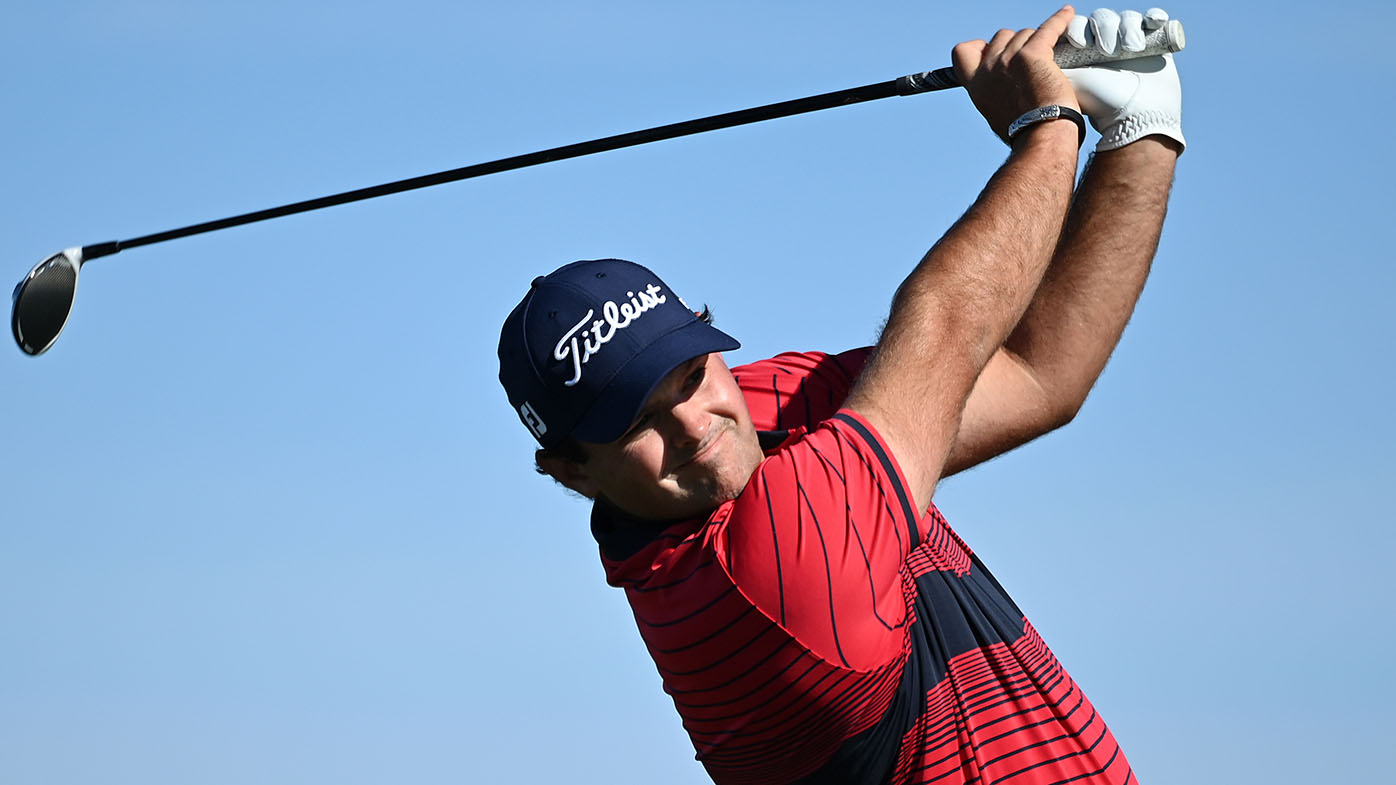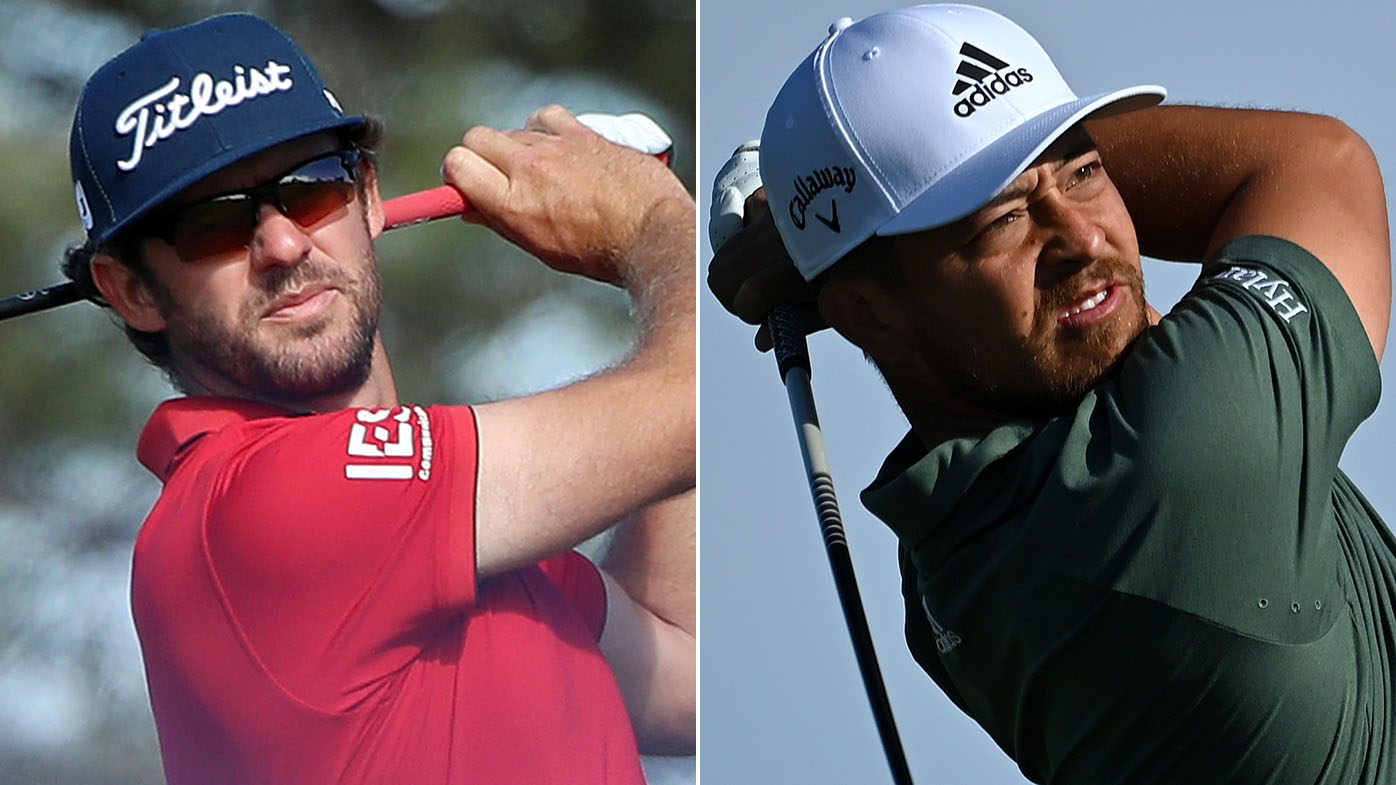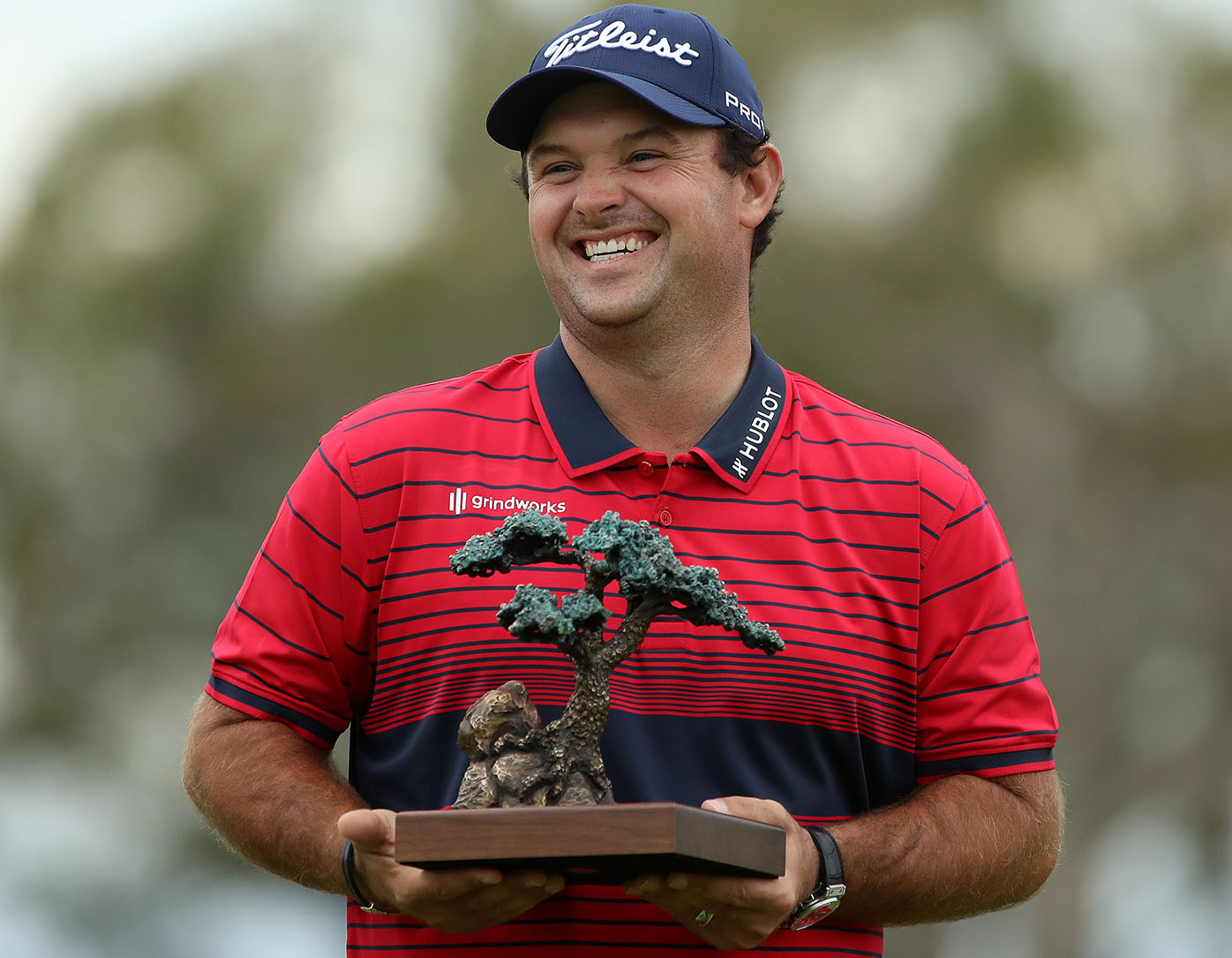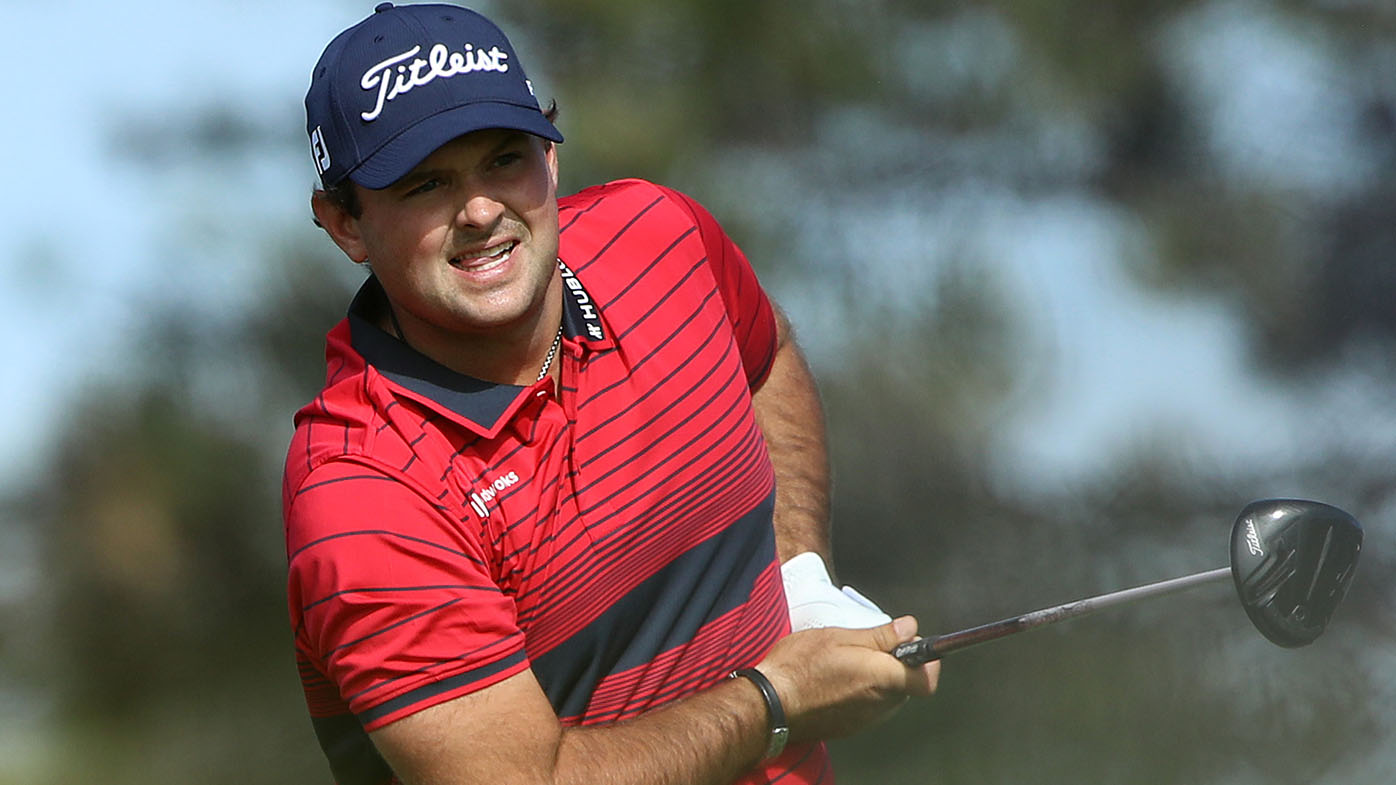Patrick Reed has some nerve.
Which, for golf's undisputed super-villain, is both a criticism and a compliment.
Reed romped home to win the Farmers Insurance Open at Torrey Pines by five shots on Monday (AEDT), the day after sparking another rules furore by claiming a free drop for an embedded ball; after a shot that bounced, landed in the rough and was picked up by the American before the lie was sighted by a rules official.
An old friend of mass controversy, Reed suffered a four-bogey lapse after the incident in round three but was untroubled on Monday. He spanked the field at this year's US Open venue, finishing at 14-under after a four-under final round of 68; an eagle and three birdies eclipsing a lone blemish on the eighth hole.
He again made par at the 10th, the scene of his polarising free drop. He played superb golf despite a fresh storm of discontent around him, posting the biggest winning margin of his career. Yet while he lauded his own mental toughness in victory, his fellow players began to unload.
"Golf's a game of sportsmanship and it's tough to put us in the spot to call him out because we weren't there," said Lanto Griffin, who finished in a tie for seventh.
"But at the end of the day, I think 99 per cent of golfers out here, it it's in question one way or the other, they're going to go the other way; not taking a drop, it didn't cross (the surface of the ground), that type of deal.
"So it's tough to see, it's sad, it kind of pisses us off, but it's the way it is. Hopefully something changes and comes to a conclusion."
Xander Schauffele, who tied for second, was also forthright in his post-round interview when asked about the Reed situation.
A Presidents Cup teammate of Reed, Schauffele made the bombshell claim that the former US Masters winner was being protected by the PGA Tour, after officials cleared him of wrongdoing. He also suggested that Reed's fellow players were angry.
"I would not put myself [in] and create a situation like that. I wouldn't," Schauffele said, insisting that he would not have picked up the ball in Reed's position.
"If my ball's embedded, I usually will wait and call someone and kind of wait until everyone's on the same page, wait to look at video. So I try to avoid situations like that just for that reason.
"No – I would wait for an official. You can put a tee in the ground and check your ball. I mean, he did everything by the book according to the official and everyone stood by there.
"Obviously the talk amongst the boys isn't great, I guess, but he's protected by the Tour and that's all that matters, I guess."
Yet Reed was basking in the glory of his ninth PGA Tour win, capped by a birdie on 18. He said that the rules controversy, construed as cheating among many golf fans following on social media, had failed to rattle him and he maintained his innocence.
"Really, my biggest takeaway is mentally I hung in there and stayed to the course," Reed told CBS after his final round.
"Talking to the head rules official yesterday right after the round, he said, 'Patrick, you did absolutely everything you could'.
"When you're out there, you are playing, you rely on [other people], whether it's volunteers, other opponents, rules officials to make the right calls. We felt like we did that and rules officials felt like they did that at the same time.
"With that being said, I felt fine, I felt great throughout the day. At the end of the day, I wouldn't have felt any other way.
"I was able to go out there and shoot a low number today and get the job done."
The PGA Tour was at pains to compare Reed's situation to a scenario involving multiple major winner Rory McIlroy in the third round; an embedded ball drop on 18 which officials branded "virtually the same", after McIlroy's ball also bounced. McIlroy said on Monday that he was convinced that his ball had landed back in its original pitch mark, where Reed's ball clearly bounced forward from its initial point of impact with the ground.
"If a ball bounces up and comes to rest in a pitch mark or a lie that's not the pitch mark that it made, then of course it's very hard for it to be embedded," said McIlroy, who finished tied for 16th at six-under.
"But I feel the way my ball was, definitely in it's own pitch mark; it had to be and that's why I was so confident to take relief and do what I did.
"In golf, you'd rather be on the wrong side of the rules than the right side of them, just because that's just what our game's about."
Reed's incident copped far more scrutiny than McIlroy's, yet as Australia's 1991 British Open winner Ian Baker-Finch said on CBS: "Unfortunately for Patrick, he has a questionable reputation with the rules."
Golf great Nick Faldo and Golf Channel analyst Brandel Chamblee have suggested that Reed's ball could not possibly have become embedded via the second impact, raising doubt over his relief claim. Chamblee noted that Reed had poked at the indentation in which he claimed his ball was found, before it was sighted by rules official Brad Fabel.
Reed looks set to walk away from the furore without any sanction, having been cleared of wrongdoing by the PGA Tour, but peers have been given fresh concerns over his sportsmanship in a game largely run by an unwritten honour code.
Reed has a string of past rules controversies, including an incident at the 2019 Hero World Challenge in which he grounded his club in a bunker and improved the lie behind the ball. He copped a two-shot penalty after footage emerged, yet denied any deliberate wrongdoing, claiming that the camera angle had exacerbated the clear offence.
Chamblee branded the incident "cheating", as did Australian golfer Cameron Smith, who called Reed's camera angle excuse "bulls–t".
For a daily dose of the best of the breaking news and exclusive content from Wide World of Sports, subscribe to our newsletter by clicking here!




Leave a Reply
You must be logged in to post a comment.